

Audio Image
The Black Girls Coalition was a non-commercial initiative that first became known in Berlin between 2001 and 2006 with its party series "Roots" which first took place on Adalbertstraße at “Open Space” and later in the anti-capitalist house project in Samariterstraße 32. The BGC was originally founded in 1994 in NYC as an organisation for African Americans and the concept was later taken up again in Berlin by Paisley Dalton. In addition to legal counseling, it also organised cinema nights, drag balls and community kitchens. The audio portrait was assembled from a voice message ping-pong with BGC performer Krylon Superstar who now lives in LA.

Credits
Time: 2001-2006
Lat: 52.516770330979,
Long: 13.465031018587
Published: 03.03.2023 Audio: English
Image: Krylon Superstar and Paisley Dalton © private archive Directed by/Regie: Niis Warsame & Ana Bisbicus
With Voices/Stimmen von: Krylon Superstar & Paisley Dalton Extracts: Film Gender X (2005) by Julia Osterta
Sound and Post-production/Sound: Ton und Technik Tobias Purfürst.
Figures and Voices
Krylon Superstar is a legendary performer, artist, fashionista, singer, hair stylist, spiritual practitioner and the co-founder of Black Girls Coalition Berlin. She worked as a Club-Kid in New York City in the 90s which kick-started her performance art career. Her art deals with themes of beauty creating uncomfortably beautiful imagery. Living in Berlin during the early 2000s she performed in Berghain, at drag shows like “Chantal’s House of Shame” and on stages such as Sophiensäle and Deutsches Theater. Krylon is now based in Los Angeles.
Paisley Dalton is among others a journalist, performer, event organizer and DJ based in Los Angeles. They apeared in movies like Übers Wasser wandeln (2004) und Gender X (2005) and was founder of the Black Girls Coalition in Berlin.
Film Gender X by Julia Ostertag
Niis Warsame is a sound editor and writer based in Leipzig and Berlin that was in part responsible for producing the Black Girls Coalition sound piece.
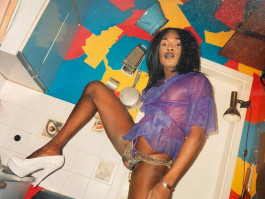
Abb. 02 Krylon Superstar, 2001-2003, Copyright: Private Archive Krylon Superstar
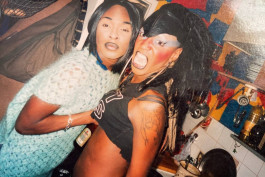
Abb. 02 Krylon Superstar and Paisley Dalton, Copyright: Private Archive Krylon Superstar
Krylon Superstar [00:00:02] Hello. My name is Krylon. Some people call me Krylon Superstar. I am an artist and I am a singer. I am a performer. I am a transwoman of color.
[00:00:16] Extract sound film Gender X by Julia Ostertag.
Krylon Superstar [00:00:16] My first contact with Black Girls Coalition. It was probably like 2000/2001. I moved to Berlin in 1999 and I got a message or a call or email or something like that from my dear friend Paisley Dalton, who had already started the BGC in New York City and decided that she wanted to create that same atmosphere in Berlin and asked me if I wanted to be a part of it. And I said, Yeah.
[00:00:48] Extract sound film Gender X by Julia Ostertag.
Paisley Dalton in Film Gender X [00:00:54] I never considered myself very political. And what we do in Black Growth Coalition also is, well, we never started off with this idea of being a political organization. I think by the very idea that we are drag queens and Friedrichshain in East Berlin, it's a statement in it of itself. The idea was to have a place initially, an organization that could help foreigners and people living alternative lifestyles. That was the objective of the Black Growth Coalition.
[00:01:34] Extract sound film Gender X by Julia Ostertag.
Krylon Superstar [00:01:34] We together with Barla and Greg. We all made it happen. The Black Girls Coalition. It was about bringing a sense of African-American heritage in community and a queer expression to Germany, to Berlin. Just to be able to present culturally being queer and black and in the world to a space like Berlin of an authentic truth, you know. But it was also about bashing gender norms. It was also about, you know, being non-binary. You know, bringing down any form of hierarchy and really embracing subculture.
Krylon Superstar [00:02:28] So we did a party at BGC called Roots. And Roots actually, originally we did at a nightclub in Kreuzberg. But then when we got the space in Samahouse in Samariterstraße. Then BGC moved to Samahouse and that party moved to Samahouse. And so there was several other parties that went on there. I DJing at BGC several times, but it was just a really open, queer space that was open to everybody. And the majority of the people that came to the BGC were misfits, were punks. A lot of the queers from Tunten Haus would come over to Samahaus and, you know, be a part of BGC Functions. But it was strictly put on by BIPoC people that were running the BGC. The kind of challenges we faced was, you know, not being able to have that sort of rooted in, you know, the sort of Berlin norm for what was queer or what was alternative lifestyle. And we did have a lot of the drag queens and we had a lot of support, but it was mostly lip service and not really kind of so much the action that was taken to support on the level that I believe BGC needed to be supported in order to continue to be a coalition. And it has a lot to do with just being black and being in Berlin. And it was a very small space. And I remember we had a stage and then we had a pole. Off to the side. Right before you got to the stage, there was a tiny little stage with a stripper pole on it. And then on the other side of the room there was the DJ booth, and we had a kitchen and a bathroom, and the bathroom was inside of the kitchen and it was a tiny space.
Krylon Superstar [00:04:28] And then there was another little small sort of chill out space. It was really dark. It was really dingy. There was BGC stickers, you know, with Paisley was kind of an animated caricature that was represented as sort of the mascot on the BGC flyer. And that sticker was posted all over the room. I remember so many different moments at the BGC. I remember when the film was being made that was called Gender X, and they came in to film us in interviews us. I was way too wasted to be interviewed, but I was definitely filmed.
[00:05:16] Extract sound film Gender X by Julia Ostertag.
Paisley Dalton in Film Gender X [00:05:17] Thank you Krylon.
Krylon in Film Gender X [00:05:21] I mean, I just wanted to take a little swim.
Krylon Superstar [00:05:26] And that is a crew being there and experiencing, you know, all the hard work we put in to creating this space being acknowledged. So we did our entire performance and I did a performance. And, you know, most of the time it was just the performances and sounds that people came to experience. And then also when I was deejaying, I played a lot of like soul music and stuff like that.
[00:05:51] Marvin Gaye fading in.
[00:05:51] And it was also beautiful to look at these like punk kids with their dogs dancing to like Marvin Gaye and like other like traditionally R&B music, you know, where you wouldn't expect those two worlds to collide like that. And at the end, you know, I don't even remember exactly how the big thing ended. I think it had something to do with the space itself. It was being presented as Verein at some point, and I believe that the space itself was no longer available for us, but it did eventually end and it was absolutely sad. Me and Paisley always wanted to somehow have like a reunion or something that might still be at some point.
[00:06:37] We'll go back out to Berlin. You know, the two black girls, of the BGC.
Krylon in Film Gender X [00:06:42] I want you guys to know something really fast.
Paisley Dalton in Film Gender X [00:06:47] Martin can I have another towel?
Krylon in Film Gender X [00:06:49] In this darkness I call Krylon Superstar, This blackness I call Life. I accept everybody for who they are.
Paisley Dalton in Film Gender X [00:07:04] Krylon.
Krylon in Film Gender X [00:07:04] What?! Can I finish my fucking sentence.
Paisley Dalton in Film Gender X [00:07:10] We need that fucking stage cry Krylon.
[00:07:19] Milkshake by Kelly (2003)
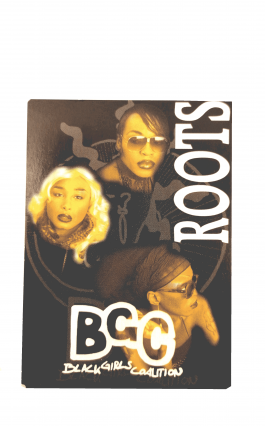
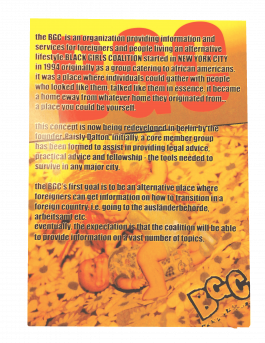
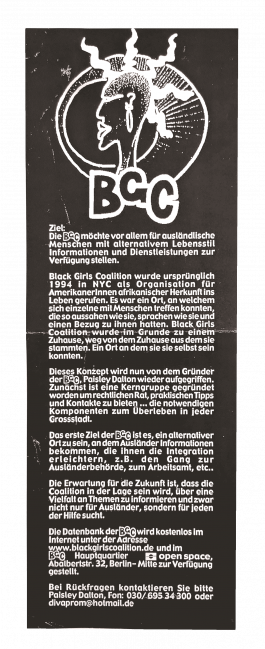
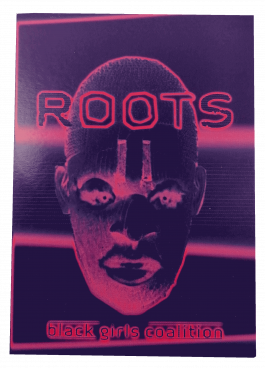
The Constellations Archive (Link) was established in 2023 as an extension of the "Constellations Festival" in Berlin, organized by Poligonal (Website). It explores vanished queer spaces in the city through artistic interventions, contemporary witness conversations, and archival work. The goal is to make these lost queer spaces visible and reinterpret their history through artistic means. The archive serves as a digital platform for the long-term documentation of the stories collected during the festival. It continues to grow, preserving the memory of marginalized communities.